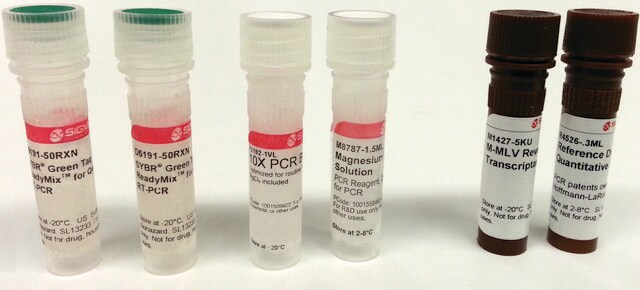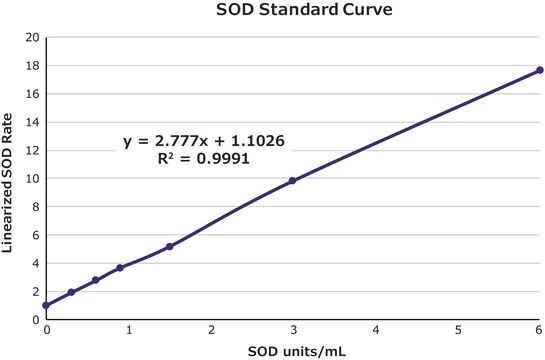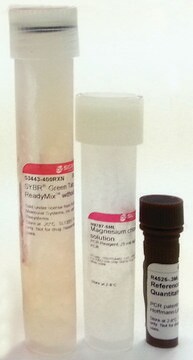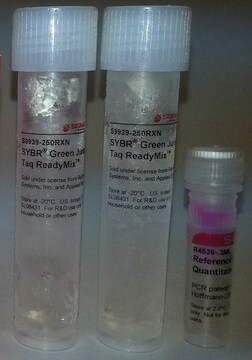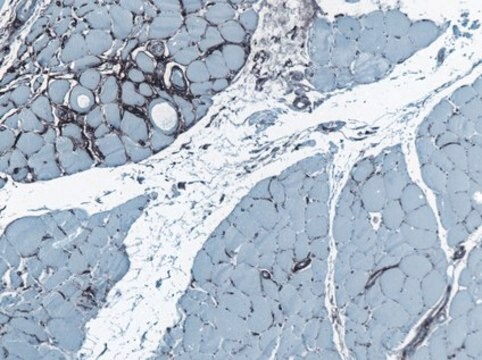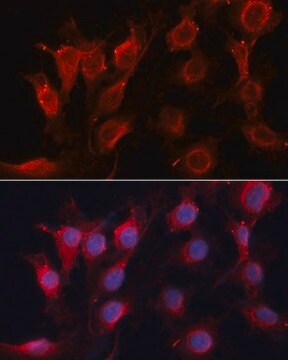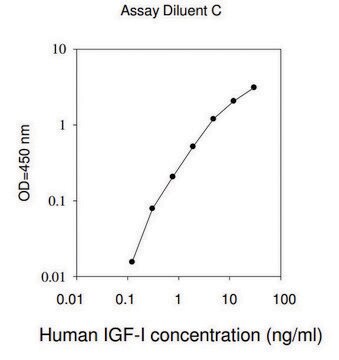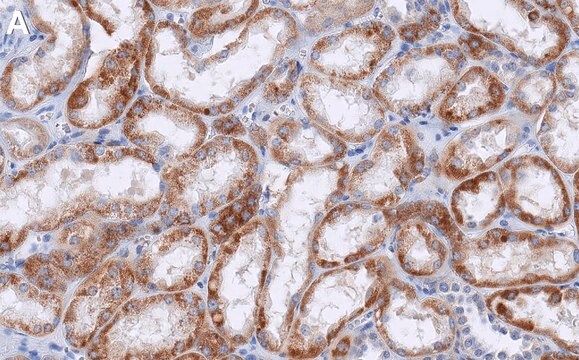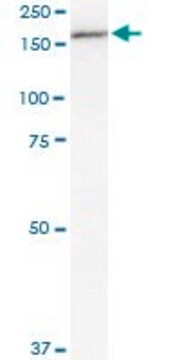ZRB2279
Anti-FGF-20 Antibody, clone 3I3-L2 ZooMAb® Rabbit Monoclonal

recombinant, expressed in HEK 293 cells
Synonym(s):
Fibroblast growth factor 20
About This Item
Recommended Products
biological source
rabbit
Quality Level
recombinant
expressed in HEK 293 cells
conjugate
unconjugated
antibody form
purified antibody
antibody product type
primary antibodies
clone
3I3-L2, recombinant monoclonal
description
recombinant, expressed in HEK 293 cells
product line
ZooMAb® learn more
form
lyophilized
purified by
using Protein A
species reactivity
human
packaging
antibody small pack of 25 μL
greener alternative product characteristics
Waste Prevention
Designing Safer Chemicals
Design for Energy Efficiency
Learn more about the Principles of Green Chemistry.
enhanced validation
recombinant expression
Learn more about Antibody Enhanced Validation
technique(s)
affinity binding assay: suitable
immunohistochemistry: suitable
western blot: suitable
isotype
IgG
epitope sequence
N-terminal half
Protein ID accession no.
UniProt accession no.
greener alternative category
, Aligned
shipped in
ambient
storage temp.
2-8°C
Gene Information
human ... FGF20(26281)
Related Categories
General description
Specificity
Immunogen
Application
Evaluated by Western Blotting in Human cerebral cortex membrane preparations.
Western Blotting Analysis: A 1:10,000 dilution of this antibody detected FGF-20 in Human cerebral cortex membrane preparations.
Quality Control Testing
Evaluated by Western Blotting in Human cerebral cortex membrane preparations.
Western Blotting Analysis: A 1:10,000 dilution of this antibody detected FGF-20 in Human cerebral cortex membrane preparations.
Tested Applications
Immunohistochemistry (Paraffin) Analysis: A 1:100 dilution from a representative lot detected FGF-20 in Human cerebral cortex tissue sections.
Affinity Binding Assay: A representative lot of this antibody bound FGF-20 peptide with a KD of 1.0 x 10-12 in an affinity binding assay.
Note: Actual optimal working dilutions must be determined by end user as specimens, and experimental conditions may vary with the end user.
Target description
Physical form
Reconstitution
Storage and Stability
Other Notes
Legal Information
Disclaimer
Not finding the right product?
Try our Product Selector Tool.
Storage Class Code
11 - Combustible Solids
WGK
WGK 1
Flash Point(F)
Not applicable
Flash Point(C)
Not applicable
Certificates of Analysis (COA)
Search for Certificates of Analysis (COA) by entering the products Lot/Batch Number. Lot and Batch Numbers can be found on a product’s label following the words ‘Lot’ or ‘Batch’.
Already Own This Product?
Find documentation for the products that you have recently purchased in the Document Library.
Our team of scientists has experience in all areas of research including Life Science, Material Science, Chemical Synthesis, Chromatography, Analytical and many others.
Contact Technical Service